Start Exploring Keyword Ideas
Use Serpstat to find the best keywords for your website
What is a website trust and how to find it out
What is a website trust
- your domain should be rather mature. If it was created more than five years ago, search engines will be much more favorable to it than to the resource that was created a month ago. Websites created on new domains are not considered trustworthy for some time, at least for a year. You can check the domain age using the Whois.net service:
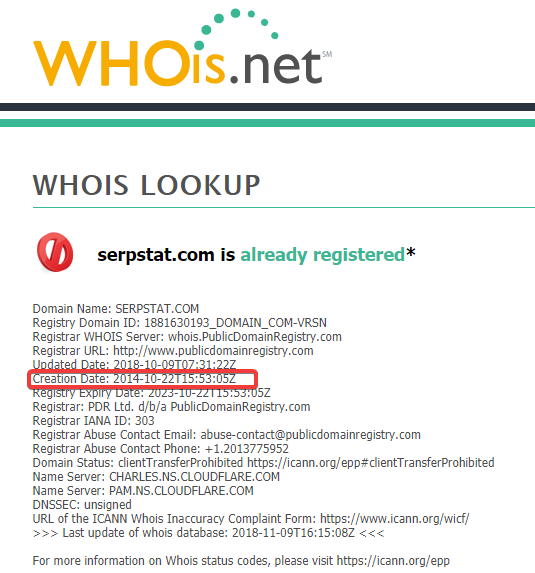
- the resource name and domain zone. It is advisable to use a thematic keyword in the website name, as well as choose a suitable top-level domain, for example, .ru, .ua, .com, .net or .org. For educational institutions, the .edu domain is suitable, and the use of it is an additional sign of trust rate for search engines;
- quality link profile. It is important that authoritative resources with similar topics link to your website. At the same time, the links for SEO should look as natural as possible, that is, be diverse, both anchor and non-anchor; 70-80% of the total number. In anchor links, it is advisable to avoid a large number of commercial keywords in anchor texts. You can check the website quality using various online services. The sharp increase in links from low-quality websites negatively affects the trust rate of the website especially if it uses spammed anchor texts with the words "buy", "order", etc;
- quality outcoming links. The website should only use thematic links to respectable projects, otherwise, it would contradict Google's recommendations. If you had to put a link to a resource with a low trust rate, it is better to close it from indexing, for this purpose you can use the nofollow attribute:
<a href="site.com" rel="nofollow">Anchor text</a>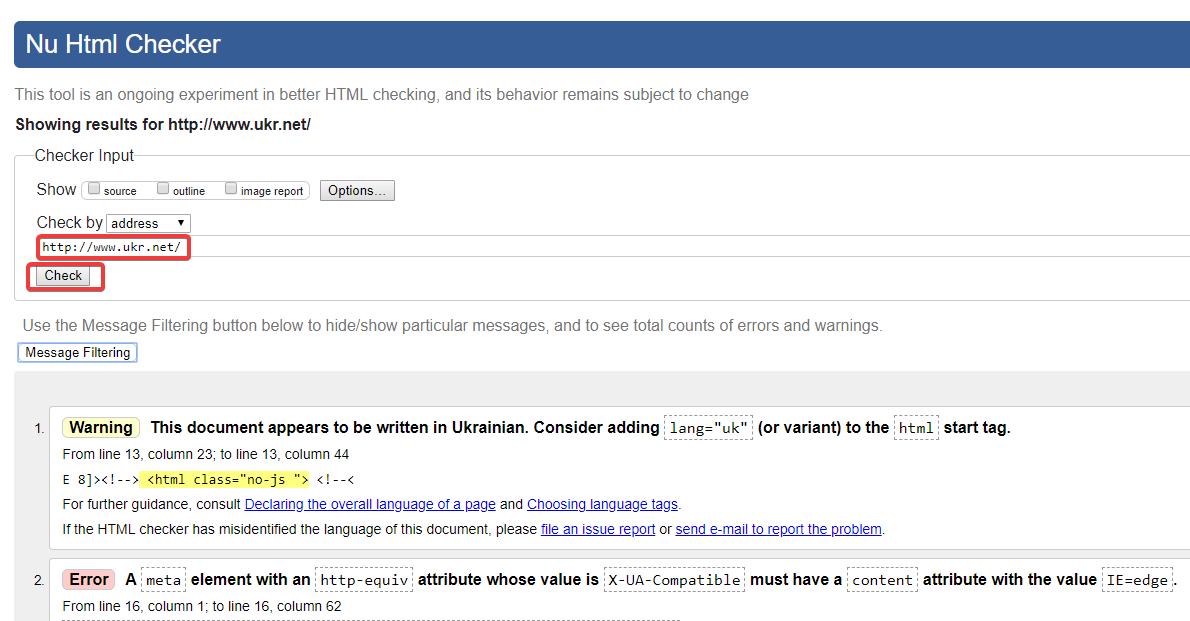
- unique and useful content. It is necessary to publish unique, informative, competent, stylistically correct texts, and your own media content on your website. Also, the text length affects the trust rate of individual pages; the content should not be too short. The website's trust rate is positively affected by the frequency of content updates; you must regularly add new materials. Using copied content leads to getting under the impact of search engine filters;
- usability. Website usability and functionality are important for the trust rate. The user should not experience difficulties using the resource on both the desktop and mobile devices. At the same time, the project pages should load quickly on any device;
- behavioral factors. When evaluating a website, search engines take user behavior into account; the number of them, pageview depth, percentage of returning visitors, bounce rate, and other factors that make it possible to make a conclusion about the project quality;
- unique design. When using a standard template, on the Internet, there will be many websites that were generated using exactly the same template. In this situation, search engines may take matching pieces of code for duplicated content;
- no viruses. The website must be free of malicious code. You can check the resource for viruses using the Virustotal online service:
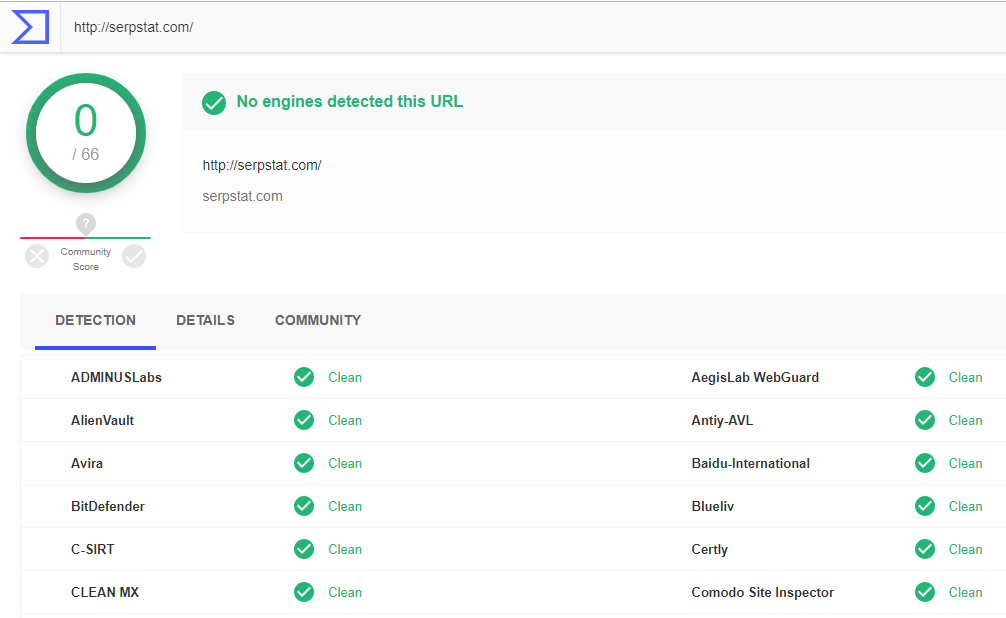
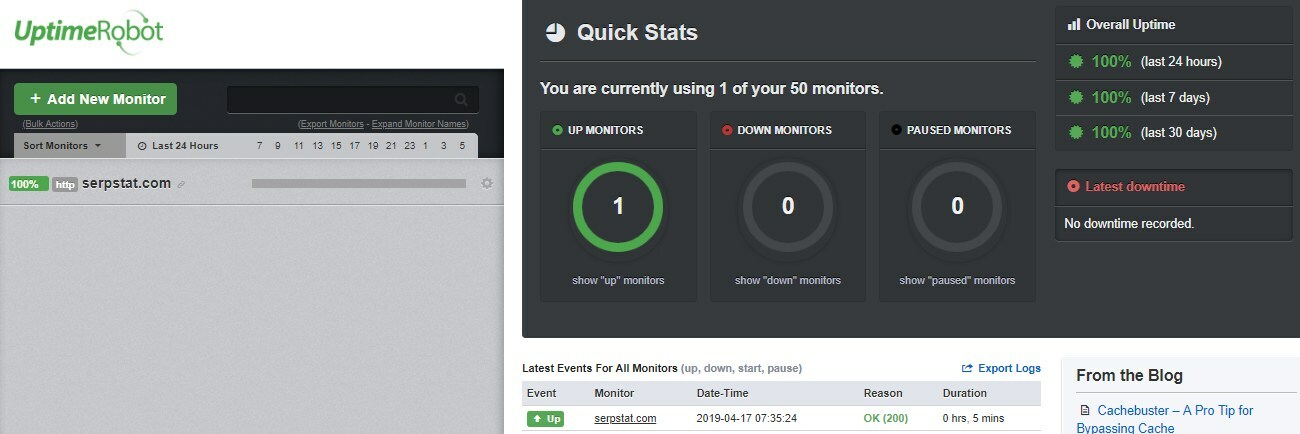
Checking the trust rate in online services
Checking the website trust rate with Serpstat SEO checker
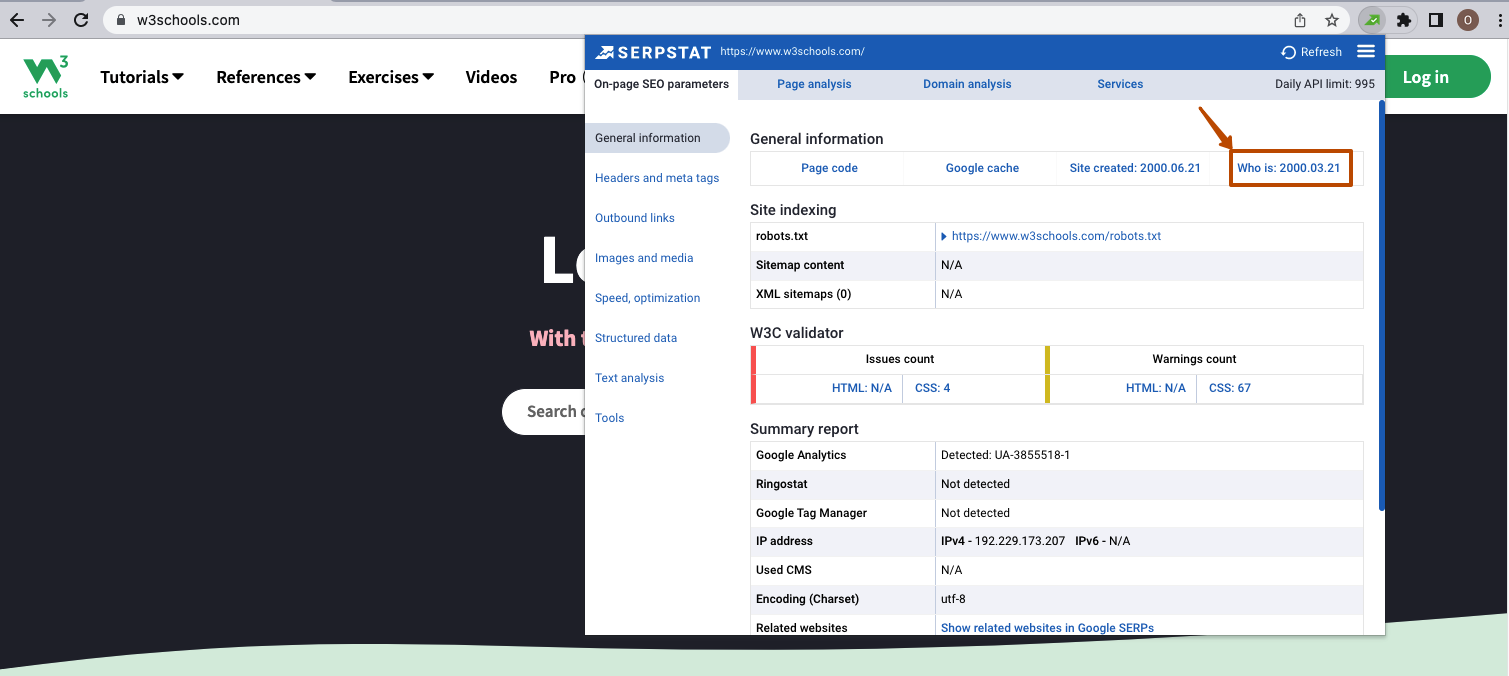
How to find out the website trust rate in MegaIndex
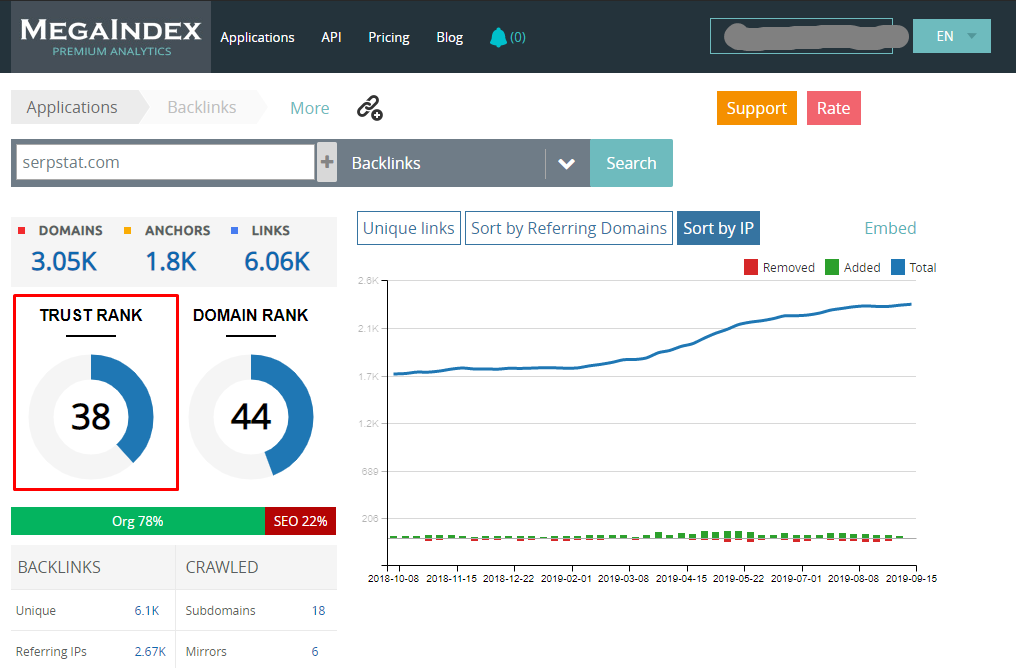
How to increase the website's trust rate in Google in 2019
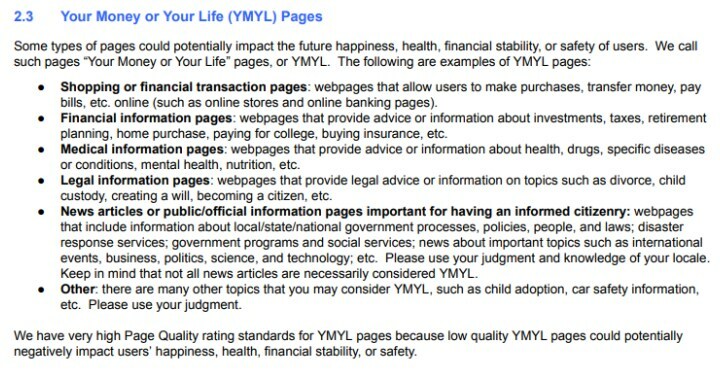
High requirements for the EAT of pages are raised not only to the content on which life and financial well-being depend. Similar requirements are imposed on the expertise of the creators of scientific, news and other content that can potentially affect the happiness, well-being, and safety of users, for example, topics on do-it-yourself repair and parenting.
Properties that a high-quality page should have:
- a specific and useful goal that is successfully achieved on the page;
- high level of expertise, credibility, and reliability;
- high-quality content with an informative headline;
- information about the person responsible for a website, and for commercial websites — complete data on customer service;
- positive reputation of the website creator or content on it.
Conclusion
Speed up your search marketing growth with Serpstat!
Keyword and backlink opportunities, competitors' online strategy, daily rankings and SEO-related issues.
A pack of tools for reducing your time on SEO tasks.
Discover More SEO Tools
Tools for Keywords
Keywords Research Tools – uncover untapped potential in your niche
Serpstat Features
SERP SEO Tool – the ultimate solution for website optimization
Keyword Difficulty Tool
Stay ahead of the competition and dominate your niche with our keywords difficulty tool
Check Page for SEO
On-page SEO checker – identify technical issues, optimize and drive more traffic to your website
Recommended posts
Cases, life hacks, researches, and useful articles
Don’t you have time to follow the news? No worries! Our editor will choose articles that will definitely help you with your work. Join our cozy community :)
By clicking the button, you agree to our privacy policy.
